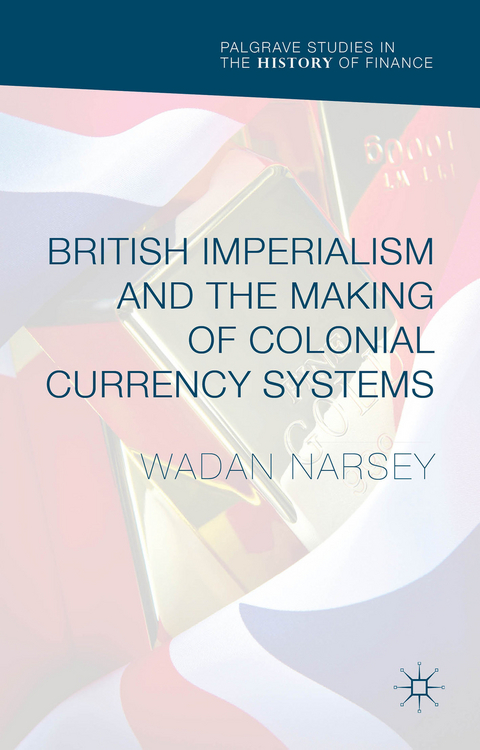
British Imperialism and the Making of Colonial Currency Systems
Palgrave Macmillan (Verlag)
978-1-137-55317-1 (ISBN)
Based on archival research covering more than two centuries and most former British colonies (West Indies, India, Singapore, Malaya, West Africa and East Africa), this book is a revisionist history of the British imperial manipulations of colonial currency systems to facilitate the rise of sterling to world supremacy via the gold standard, and to slow its eventual decline after World War II.
Britain forcibly replaced international currencies, including gold and sterling itself, by new localised silver currencies, backed by gold and sterling reserves in London, under the total control of the British Treasury and the powerful influence of the Bank of England.
Ignoring colonial needs, imperial decision-makers continuously over-ruled colonial governments, commercial interest in colonies (British and local), Colonial Office and the Crown Agents, to support liquidity in the London Money Market, convertibility of sterling, export of British capital, and cheap readilyavailable finance for the British Government. Academia, including Keynes and institutions like the London School of Economics, are shown to have played supporting roles.
This book is valuable reading for academics and students interested in theories of imperialism, colonial underdevelopment, money (national and international) and related topics such as currency areas and exchange rates. Its comprehensive index links monetary concepts to actual events in the British Empire, with pointers to new research areas.
This account of the rise and fall of sterling as a world currency may have lessons for the future trajectories of the US dollar, Euro, Chinese renminbi and the Indian rupee.
Wadan Narsey is a former Professor of Economics at The University of the South Pacific. He is currently an Adjunct Professor at The Cairns Institute, James Cook University, and at Swinburne University, Australia. He is a former Fiji parliamentarian, a commentator on the political economy of Fiji and the Pacific and a regular columnist for the Fiji Times. He has a personal website: NarseyOnFiji.
1. The accepted history of British colonial currency systems and the key questions.- 2 . Currency policies for Britain (1698-1893): adoption of the Gold Standard and rejection of silver and bimetallism.- 3. Colonial currency policies (1600-1893): from international to localized currencies.-
4. India 1893-1912: conflicts and imperial resolution.- 5. Straits Settlements 1893 – 1912: the transition from India to West Africa.- 6 . The establishment of the West African Currency Board: 1893-1912.- 7. Conflicts over the administration of colonial reserves in London (1927-1957), academic criticisms and imperial responses.- 8. Reassessment of the currency board debate.- 9. Currency and monetary policies in white settler colonies.- 10. Conclusion.
| Erscheinungsdatum | 18.03.2016 |
|---|---|
| Reihe/Serie | Palgrave Studies in the History of Finance | Palgrave Studies in the History of Finance |
| Zusatzinfo | XV, 356 p. |
| Verlagsort | Basingstoke |
| Sprache | englisch |
| Maße | 140 x 216 mm |
| Themenwelt | Geisteswissenschaften ► Geschichte ► Regional- / Ländergeschichte |
| Geschichte ► Teilgebiete der Geschichte ► Wirtschaftsgeschichte | |
| Naturwissenschaften | |
| Wirtschaft ► Allgemeines / Lexika | |
| Wirtschaft ► Betriebswirtschaft / Management ► Finanzierung | |
| ISBN-10 | 1-137-55317-0 / 1137553170 |
| ISBN-13 | 978-1-137-55317-1 / 9781137553171 |
| Zustand | Neuware |
| Informationen gemäß Produktsicherheitsverordnung (GPSR) | |
| Haben Sie eine Frage zum Produkt? |
aus dem Bereich


